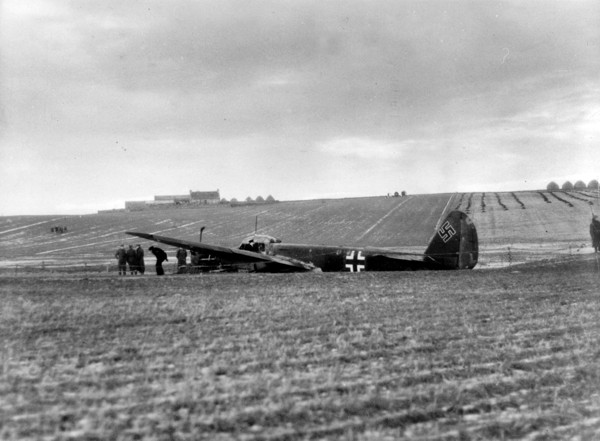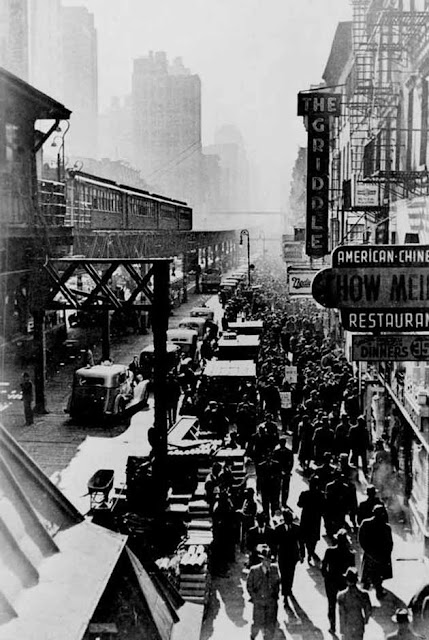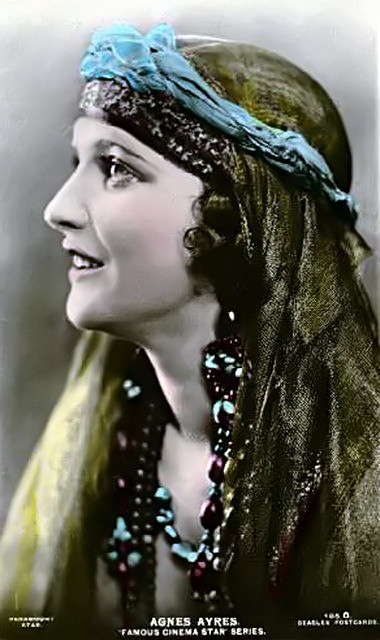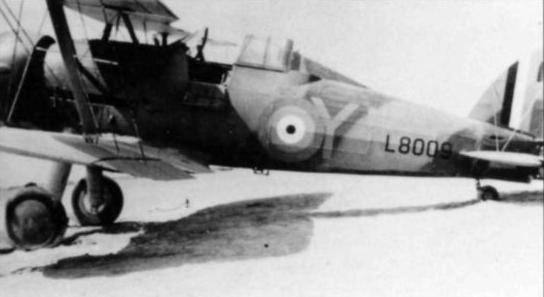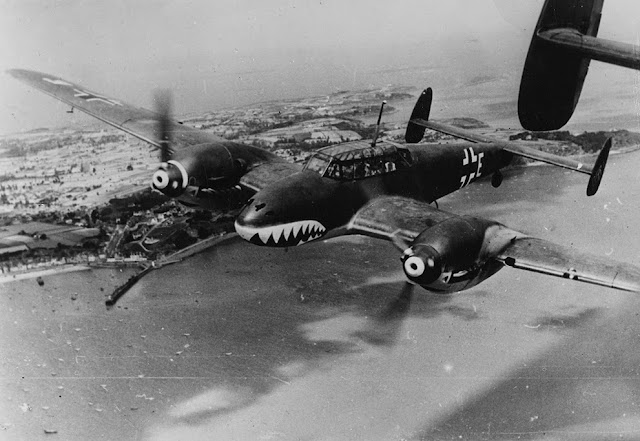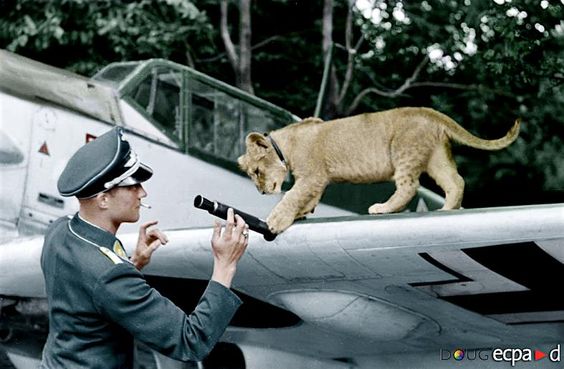Tuesday 31 December 1940
 |
| "A 7.2-inch howitzer in action during the attack on Bardia, 31 December 1940." © IWM (E 1513). |
However, not everything is quite as rosy for Germany as the military status quo would make it appear. Germany's military advantage already is dissipating. Great Britain remains unsubdued, and its backing by the United States has grown steadily throughout the year. In fact, just a couple of days ago, on 29 December, President Roosevelt basically announced during his "Arsenal of Democracy" speech that his goal - and that of the United States - was the defeat of Germany. That is not a good omen for Germany. While the full weight of the US is not being felt yet, already it is proving to be Great Britain's lifeline and the only thing still keeping it in the war (except, perhaps, for Hitler's timidity about invading it). Indications are that US public opinion is shifting dramatically in favor of Great Britain and against Germany.
The Luftwaffe remains ascendant, but the balance never has been so far in its favor as to say that it has aerial supremacy. At this stage, Germany essentially controls the daylight skies over Europe, but that is not stopping mounting RAF raids. The German shift to area bombing on 7 September 1940 has done nothing to improve its military position and has simply invited reprisal raids. It also may be a factor in changing US opinion about the war, as daily Blitz broadcasts by reporters such as Edward R. Murrow paint the Germans as predators and killers (and no such broadcasts are made showing RAF attacks on Germany and France). The German change in bombing tactics right when the RAF was in trouble was a tremendous tactical error and a public relations disaster.
The Kriegsmarine has had a number of surprising successes and no giant failures to date. However, The Royal Navy controls the surface despite the slipperiness of numerous German raiders around the world. Possession of the French and Norwegian coasts makes further German U-boat gains likely, but Germany's surface fleet remains hopelessly outclassed with no signs of parity within sight.
The German shift toward a peripheral strategy in the Mediterranean is proving to be a failure. It relies upon the Italians, and the Italians are weak. Italian troops are numerous, but they refuse to fight except when holding an overpowering advantage. Excepting the great success over the summer in British Somaliland, a victory accomplished with a relative handful of troops, every Italian military initiative during 1940 - the ludicrous tiny advance in southern France, the bizarre participation in the Luftwaffe's assault on England, the ghastly reversals in Albania and North Africa - has been a colossal embarrassment. Hitler already is having to alter his strategy to support Italy, by moving Luftwaffe units to the Mediterranean and planning Operation Marita, the invasion of Greece (and, ultimately, Yugoslavia as well). Looking over the entire span of the war, Italy's failures in 1940 are the first nail in Germany's coffin. Italy's failures also are raising doubts in France and Spain that are limiting German possibilities. Rather than helping Germany, Italy already is becoming a drag on the war effort and giving the Allies successes that should never have occurred.
One concludes that Germany's position is powerful but tenuous. Stalin continues to back Hitler, though he is trying to drive a hard bargain for military support. The US remains on the sidelines militarily but holds the world balance of power. In Europe, Germany controls the land, while Great Britain controls the seas. Neither side can defeat the other - unless something dramatic changes.
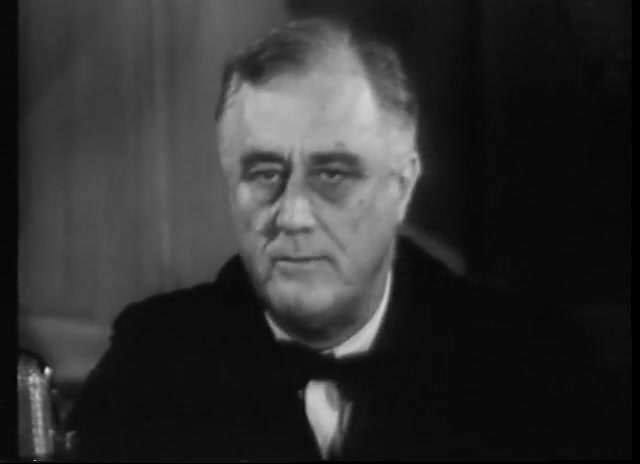 |
| President Roosevelt as shown in Universal Newsreels, Release 941, December 31, 1940 (filmed on 29 December as part of his Arsenal of Democracy speech). Roosevelt holds the world balance of power. |
The RAF attacks the Italian supply port at Valona (Vlorë).
European Air Operations: RAF Bomber Command targets German transportation nodes such as bridges at Cologne, Rotterdam, Ijmuiden, and Emmerich. The Luftwaffe sends a few solo raiders across during the day, one of which strafes a passenger train in Kent. The Luftwaffe does not attack after dark.
December 1940 has seen the widest dispersion of Luftwaffe attacks and with the greatest intensity. During the month, the following cities were targeted with concentrated attacks, meaning over 50 tons of high explosives:
- London (3 attacks, 605 tons of high explosives, 4129 incendiaries)
- Liverpool/Birkenhead (2 attacks, 485 HE, 1701 incendiaries)
- Manchester (2 attacks, 467 HE, 1925 incendiaries)
- Sheffield (2 attacks, 435 HE, 1057 incendiaries)
- Birmingham (3 attacks, 409 HE, 1317 incendiaries)
- Bristol (2 attacks, 198 HE, 773 incendiaries)
- Southampton (1 attack, 147 HE, 586 incendiaries)
- Portsmouth (1 attack, 88 HE, 148 incendiaries).
U-65 (Kapitänleutnant Hans-Gerrit von Stockhausen), operating much further south than other U-boats, also finds an easy target, a tanker sailing a straight course east of the Cape Verde Islands. Stockhausen fires two torpedoes at 17:52, but both miss. Stockhausen does not give up but instead trails the tanker north for several hours. Finally, a third torpedo at 23:00 hits and damages 8532-ton British tanker British Zeal off the coast of Africa. The 50-man crew abandons ship, and then Stockhausen puts a second torpedo into the tanker. Stockhausen assumes the tanker is finished, but the next morning the crew in their lifeboats see the tanker still afloat, though very badly damaged. They reboard and find the engines intact, but abandon the ship again out of fear that the U-boat is still lurking. However, after another night in the lifeboats, the crew re-boards again the following morning and raises steam. Even with all of its damages - three tanks on the starboard side flooded and massive damage to the deck - the tanker proceeds on its way. It ultimately is towed to Freetown and undergoes temporary repairs. Ultimately, it sails to Baltimore for permanent repairs and then returns to service in February 1942.
The seas remain rough, leading to more collisions. German 764 ton freighter Porjus collides with another ship near Brunsbüttel, Schleswig-Holstein and sinks.
British 390 ton freighter St. Fergus also collides with 1574 ton Glasgow freighter Fidra east of Rattray Head, Aberdeenshire and sinks. In such situations, the bigger ship usually (but not always) wins.
Royal Navy heavy cruiser HMS Berwick, badly damaged during the Christmas encounter with German cruiser Admiral Hipper, makes port at Gibraltar. After landing her wounded, the Berwick will proceed to Portsmouth for permanent repairs.
Convoy FN 372 departs from Southend, Convoy FS 376 departs from Methil.
Allied shipping losses for December 1940 to the listed causes (amounts vary by sources, so any figures are approximate):
- U-boats: 76 ships, 212,590 tons
- Luftwaffe: 14,890 tons
- Surface Raiders: 55,728 tons
- Mines: 54,331 tons
- Total losses for 1940:
- Allies: 1,059 ships 4,055,706 tons
- Axis: 22 U-boats, 20 Italian submarines
Captain George Lindemann returns from his holiday and re-assumes command of the battleship Bismarck.
Big Christmas party on board HMS Hood, as recounted by future US Admiral Joseph Wellings. Everybody he encounters that night in the well-attended function, from the Admiral and Captain on down, will perish in May 1941, after he leaves the ship.
U-126 launched.
Soviet submarine M-34 joins the Black Sea Fleet, while Soviet submarine S-54 joins the Pacific Fleet.
Royal Navy destroyer HMS Dainty captures 231-ton Italian schooner Tiberio and 244-ton schooner Maria Giovanni en route between Bardia and Tobruk. The Italians are trying to transfer people to Tobruk because it is considered less vulnerable. Dainty seizes them while it is escorting gunboats HMS Aphis and Ladybird to Bardia and Sollum in preparation for the Australian assault on Bardia.
Greek submarine Katsonis (Lt Cdr Spanides, RHN) makes a surface attack on 531-ton Italian tanker Quinto in the Bay of Valona. It sinks the Quinto with gunfire.
The Royal Navy forms Submarine Flotilla 8 at Gibraltar. It will include HMS Olympus, Otus, and Pandora, which are all in the process of traveling there or already have made port.
 |
| Royal Navy gunboat HMS Ladybird parked off Bardia, 31 December 1940. |
Churchill proposes according to his memoir, "The Second World War," Vol. II, pp. 550-51), that Vichy France "profit by the favorable turn of events." To do that, France should re-join the war against the Axis. Great Britain was prepared to land six divisions of troops in Morocco if Petain agrees to switch sides. This is all well and good, but Churchill does not explain how he would stop the Germans from then occupying the rest of France itself.
Anglo/US Relations: Churchill cables President Roosevelt in reference to the latter's 29 December "Arsenal of Democracy" fireside chat:
I thank you for testifying before all the world that the future safety and greatness of the American Union are intimately concerned with the upholding and the effective arming of that indomitable spirit.... All my heartiest good wishes to you in the New Year of storm that is opening upon us.Churchill also references the destroyers-for-bases deal of September 1940. The formerly US destroyers, the Royal Navy has found, are of limited value. The British crews despise them, and they require extensive refits before being useful. Of the 50 turned over to the British, only 9 are in service with the Royal Navy, the others undergoing various modifications and upgrades. Some are in such bad shape that the Admiralty doesn't want them in normal service, but instead is trying to figure out ways to use them for such purposes as running them into German-held Channel ports and blowing them up. Churchill pointedly annexes a list of problems with the destroyers to his telegram, "in case you want to work up any of the destroyers lying in your yards."
Of course, the real value of the destroyers-for-bases deal was not the destroyers themselves, which are almost incidental; it is getting US troops to take over defense of British bases in the Atlantic, freeing up British troops for other purposes, and cementing the relationship between the United States and Great Britain - or, more specifically, the relationship between Churchill and Roosevelt. In that latter sense, the deal has been phenomenally successful.
Roosevelt also sends Churchill a telegram today on another topic: humanitarian relief to occupied Europe. In a message drafted by Sumner Welles, Roosevelt proposes "for humanitarian and also political reasons" giving "limited quantities of milk and vitamin concentrates for children." These will be shipped through the International Red Cross to Spain and Vichy France (not the parts occupied by Germany, which is the greater part of France). Spain long has been on Roosevelt's mind, but this message adds unoccupied France to the list. Churchill would have to approve such a measure due to the British blockade of anything useful going to Europe. Churchill so far has been resistant to such shipments, figuring that it gives aid to the enemy. Roosevelt hints that aiding Spain and Vichy France might make them more susceptible to deserting Hitler, something that Churchill - likely unknown to Roosevelt - is actively working on today.
 |
| The National Association for the Advancement of Colored People (NAACP) asks Attorney General Robert Jackson to investigate Memphis, Tennessee. Atlanta Daily World, 31 December 1940. |
German/Soviet Relations: Replying to a letter from Joseph Stalin, Adolf Hitler writes Stalin a personal letter dated 30 December 1940. Addressed "Dear Mr. Stalin," Hitler vows to "put an end to this rather drawn-out affair by seizing and occupying the heart of the British Empire - the British Isles." He claims that German troops are only in Poland for "reorganization and training" and to keep them away from British bombers and intelligence. He promises that "beginning in approximately March" these troops will be "moved to the Channel coast and the western coast of Norway." He also intends, he says, to use these troops to "force the British out of Greece" by moving them south through Romania and Bulgaria. You may read the letter here.
In his letter to Mussolini of today's date, Hitler writes that "our present relations with the USSR are very good." He lists a few reasons why, and concludes that there was "considerable hope that we can resolve in a very reasonable manner the remaining points at issue... and reach a solution which will avoid the worst...."
Finnish/Soviet Relations: The Helsinki government terminates the Finland-Soviet Peace and Friendship Society.
 |
| New Year's Eve on Broadway, 31 December 1940. While this is only a small group of people, Times Square is jam-packed for the celebration. Photo: Daily News/UCLA Digital Collection. |
According to the will of the warmongering democrats, and of their capitalist and Jewish allies this war must be continued. The representatives of the crumbling world hope that in 1941 it may be perhaps possible to do that which was impossible in the past. We are ready. We find ourselves at the beginning of 1941, armed as never before. I know that each one of you will do his duty. God, great and powerful, does not abandon the man who is threatened by a world of enemies, and who is determined to defend himself with a firm and stout heart. Soldiers of the National Socialist Armed Forces of Greater Germany, the year 1941 will bring us, on the Western Front, the completion of the greatest victory of our history.As usual, Hitler casts the war as a defensive struggle, even as he plans to invade not one, but a handful of new countries.
American Homefront: Investor sentiment about the US economy remains in the doldrums: the Dow Jones Industrial Average concludes the year at 131.13, completing a 12.72% loss for 1940. The Great Depression remains in force, despite some upswings at various points during the 1930s.
Bette Davis marries businessman Arthur Farnsworth in Rimrock, Arizona.
Future History: Princess Elisabeth, Duchess in Bavaria, is born in Stockholm, Sweden. In 1967, she marries Prince Max, Duke in Bavaria, heir presumptive to both the former Bavarian Royal House and the Jacobite Succession. They have five daughters. Max, incidentally, is the great-grandson of King Ludwig III of Bavaria, the last King of Bavaria and cousin of famous King Ludwig II, the builder of famous Neuschwanstein Castle. Max and Elisabeth live at Schloss Tegernsee and Schloss Wildenwart, not too far from Füssen, the town near Neuschwanstein Castle.
 |
| A holiday costume party in Riga, Latvia, 31 December 1940. Many of those pictured perished in the Holocaust. |
December 1940
December 1, 1940: Wiking Division Forms
December 2, 1940: Convoy HX 90 Destruction
December 3, 1940: Greeks Advancing
December 4, 1940: Italian Command Shakeup
December 5, 1940: Thor Strikes Hard
December 6, 1940: Hitler's Cousin Gassed
December 7, 1940: Storms At Sea
December 8, 1940: Freighter Idarwald Seized
December 9, 1940: Operation Compass Begins
December 10, 1940: Operation Attila Planned
December 11, 1940: Rhein Wrecked
December 12, 1940: Operation Fritz
December 13, 1940: Operation Marita Planned
December 14, 1940: Plutonium Discovered
December 15, 1940: Napoleon II Returns
December 16, 1940: Operation Abigail Rachel
December 17, 1940: Garden Hoses and War
December 18, 1940: Barbarossa Directive
December 19, 1940: Risto Ryti Takes Over
December 20, 1940: Liverpool Blitz, Captain America
December 21, 1940: Moral Aggression
December 22, 1940: Manchester Blitz
December 23, 1940: Hitler at Cap Gris Nez
December 24, 1940: Hitler at Abbeville
December 25, 1940: Hipper's Great Escape
December 26, 1940: Scheer's Happy Rendezvous
December 27, 1940: Komet Shells Nauru
December 28, 1940: Sorge Spills
December 29, 1940: Arsenal of Democracy
December 30, 1940: London Devastated
December 31 1940: Roosevelt's Decent Proposal
January 1941
January 1, 1941: Muselier ArrestedJanuary 2, 1941: Camp Categories
January 3, 1941: Liberty Ships
January 4, 1941: Aussies Take Bardia
January 5, 1941: Amy Johnson Perishes
January 6, 1941: Four Freedoms
January 7, 1941: Pearl Harbor Plans
January 8, 1941: Billions For Defense
January 9, 1941: Lancasters
January 10, 1941: Malta Convoy Devastation
January 11, 1941: Murzuk Raid
January 12, 1941: Operation Rhubarb
January 13, 1941: Plymouth Blitzed
January 14, 1941: V for Victory
January 15, 1941: Haile Selassie Returns
January 16, 1941: Illustrious Blitz
January 17, 1941: Koh Chang Battle
January 18, 1941: Luftwaffe Pounds Malta
January 19, 1941: East African Campaign Begins
January 20, 1941: Roosevelt 3rd Term
January 21, 1941: Attack on Tobruk
January 22, 1941: Tobruk Falls
January 23, 1941: Pogrom in Bucharest
January 24, 1941: Tank Battle in Libya
January 25, 1941: Panjiayu Tragedy
January 26, 1941: Churchill Working Hard
January 27, 1941: Grew's Warning
January 28, 1941: Ho Chi Minh Returns
January 29, 1941: US Military Parley With Great Britain
January 30, 1941: Derna Taken
January 31, 1941: LRDG Battered
2020



